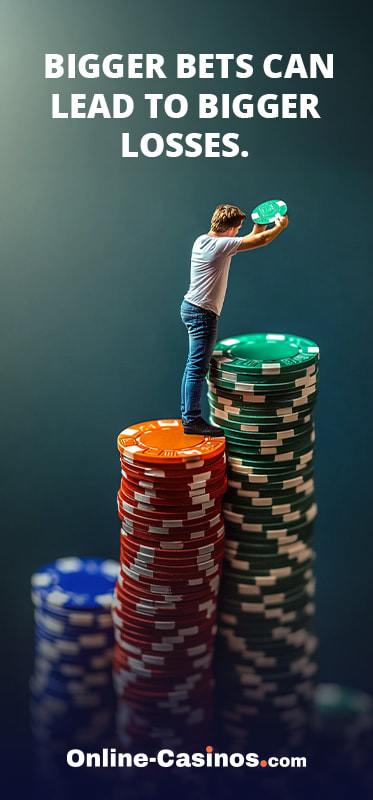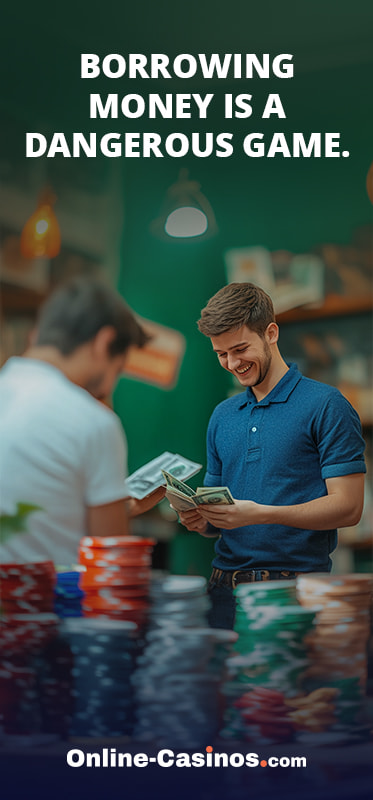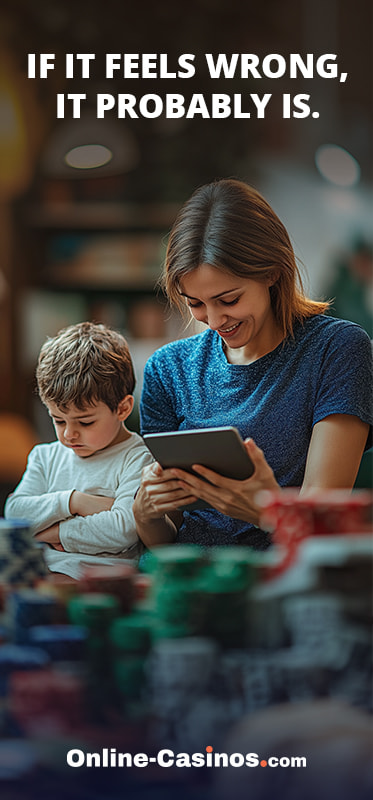1. Chasing Losses
Ever bet more to recoup losses? This is one of the main signs of problem gambling and one of the key items used to calculate the Problem Gambling Severity Index in the UK.
2. Betting Beyond Means
If you’re also gambling away money you can’t afford to lose, you are now exhibiting two major gambling addiction signs. This isn’t just about the cash – it’s about risking your financial security and future.
3. Preoccupation with Gambling
Constantly thinking about gambling? When it dominates your thoughts and distracts you from daily life, it’s a serious issue that might signal an addiction.

4. Hiding Your Gambling
Hiding your gambling addiction symptoms from family and friends is a significant warning sign. This secrecy shows that you know something is wrong. If you haven’t already, now is the time to ask for help.
5. Lying About Gambling
Lying to loved ones about your gambling activities isn’t just deceitful – it’s one of the severe symptoms of gambling addiction. It erodes trust and suggests a deeper issue.
6. Increased Bets Over Time
Gradually increasing your bets even after you’ve reached your max budget? Failure to take steps to manage your casino bankroll is one of the classic signs of gambling addiction. You are chasing the thrill but need to risk more to achieve it.

7. Borrowing Money to Gamble
Borrowing money to fund gambling activities indicates you’re in way over your head. This behaviour points to an urgent need to address potential addiction.

8. Neglecting Responsibilities
Neglecting responsibilities involves missing work or important obligations to gamble. This neglect signals a shift in priorities and can strain relationships, jeopardise employment, and lead to significant life disruptions.
9. Mood Swings Related to Gambling
Are your emotions a rollercoaster, wildly swinging between elation after wins and despair after losses? The dependence of your mood on bet results can be hard to notice, but it’s a crucial indicator of addiction. This could lead you to make erratic betting decisions in the future that could land you in trouble.
10. Gambling to Escape
Using gambling as an escape from problems in your life is a dangerous coping mechanism. It provides temporary relief but ultimately worsens underlying issues and creates new ones.
11. Family and Friends Are Concerned
If family and friends express concern towards you, listen up. Their worry reflects a serious problem but also offers a chance for intervention and getting gambling addiction support.

12. Unable to Stop
Struggling to quit gambling despite numerous attempts suggests you’re in deeper than you realise. This is a clear indication that professional help is necessary to break free.
13. Feeling Guilty After Gambling
Do you experience guilt or regret after betting sessions? That nagging feeling is one of those signs of problem gambling that offers you the chance to face yourself and seek help.

Support and Information Resources
| UK Responsible Organisation | Services Provided | Recommended Contact Method |
|---|---|---|
| GamCare | Helpline, online chat, face-to-face counselling, online forums | Call 0808 8020 133 or use the online chat service |
| GambleAware | Helpline, funding for research and services, public awareness campaigns | Call 0808 8020 133 |
| Gordon Moody Association | Residential treatment programs, therapy, support groups | Call 01384 241292 or email info@gordonmoody.org.uk |
| Gamblers Anonymous UK | Peer support groups, regular meetings, self-help | Call 0330 094 0322 or email info@gamblersanonymous.org.uk |
| NHS National Gambling Treatment Service | Therapy, counselling, rehabilitation programs | Ask a GP for a referral to a gambling treatment clinic |
| YourGamePlan | Educational resources, workshops, awareness campaigns | Contact via Inquiry Form |
“I’ve seen how devastating problem gambling can be, both for the individual and their loved ones. Please don’t wait until you display all 13 signs of gambling addiction – early recognition is critical!”
